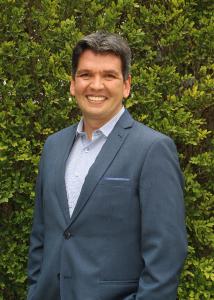Apurimac and Cuzco on the path on sustanibility - Regional Programme Energy Security and Climate Change in Latin America
The event began with the speech from Pedro Gamio (Director of Peru Renewable Energy) who stressed the importance of the use of renewable energies in the rural sector, which is predominant in the Apurímac region, and he drew the attention of the participants in order that the environmental leaders that the planet needs may emerge from civil society, universities, private companies and, of course, the State, with the sense of urgency required by the latest IPCCC reports, in the face of the advance of climate change.
Presentations
Electromobility
Then it was the turn of Congressman Armando Villanueva, who gave a presentation on Electromobility, which is a great option to reduce transport emissions and air pollution, but which is currently in the “pilot phase” in our country (due to the acquisition and installation costs), but with an optimal horizon by 2030. This advent of electric mobility would be beneficial for the Abancay region due to the high concentration of copper that lies under the ground. Furthermore, he committed himself to continuing the promotion of laws to the benefit of sustainable development, such as the “Law on safety and promotion of the diversity of the energy matrix” and the “Law that regulates single-use plastic and containers”, which he helped to promote from his seat in Congress.
Sustainable cities for sustainable regions: The challenge of sustainability for the cities of Peru
Anna Zucchetti (Periferia S.A.C.) presented the “Mi Ciudad” (My City) platform that seeks to obtain urban data, urban solutions and shared value, in alliance with different organizations, such as the Peru Renewable Energy Network. She mentioned that Abancay is a city with a high incidence of poverty, that it has a much accelerated urban growth rate, which has repercussions, for example on the adoption of green spaces (scarcity of parks in the city), aside from not having a sanitary landfill; luckily it does have good water and sewer coverage. In matters of Environmental Governance, Abancay has an Environmental Policy, a Plan and a ROF (Rules on Functions), which opens the possibilities of improvement with some political and civil will.
Climate change and renewable technologies
Pedro Gamio Aita (Director of Peru Renewable Energy and Former Vice Minister of Energy) stressed the need to boost the use of bioenergy with, for example, improved kitchen stoves instead of firewood, which would be of great help in low-income households. The duty of the region is to bolster its agriculture, since it has adequate altitudinal floors for the organic production (of high economic and nutritional value) of foods such as the precious Quinoa, as well as potential forest wealth.
Peru is a vulnerable country in terms of climate change. It is one of the countries that will suffer most from the effects of climate change. That is why Apurímac must work to be prepared for these changes. It must analyze strategies against disasters, frosts, droughts, etc., and that will be achieved with quality education, gender equity, industry with innovation and sustainable cities and communities. Safety as a human right.
Management of natural resources, organic waste recovery plant
Miguel Ángel Atausupa Quin (Manager of Environmental Management of Machu Picchu) presented his experience in the Cusco region, especially his management in the city of Machu Picchu (Aguas Calientes), recently named as the first sustainable city of Peru, due to the implementation of, BIOCHAR, an organic solid waste recovery plant, which will treat 100% of the city's waste (from the most part, from tourists walking to the sacred city) and campaigns that have made an impression on the population, such as “No more use of plastic”, and the habit of segregating at the source. He also spoke about his experience in the regional government of Cuzco, where they succeeded in establishing 18 priority zones for conservation, which means 40% of the entire Cusco territory (Choqueiquirao, Humedal Lucre-Huarcarpay, Tres Cañones, etc.)
Non-conventional renewable energies in Amazonas and Ayacucho
Wildor Gosgot Ángeles (Universidad Nacional Toribio Rodríguez de Mendoza of Amazonas) presented the research that is being carried out in Amazonas for the production of Biogas (installation of biodigesters), the prototype of a biogas car, covered-lagoon-type biodigester, hybrid wind-photovoltaic systems to generate Electric Power. The UNTRM has solar panels for: campus lighting, charging cell phones, charging laptops, etc... Finally the professor Julio Ore García (Renewable Energy Center of Universidad Nacional de San Cristóbal de Huamanga, Ayacucho), explained that in his University some works have been developed, such as the Multipurpose Solar Module, the Solar Accumulator Concentrator, solar kitchen stoves, solar panels, etc. He mentioned that they also organize the “Solar Ingenuity” contest, solar fairs, and technological exchanges with Canadian interns (Credil from Canada), with whom, for example, this year they will build greenhouses in the Community of Socos, by the year 2020, solar dryers, and in the year 2021, a community company will be created for the Community of Socos. These two experiences show that academia is the great source of solutions that politicians and civil society must implement.
In closing the event, the attendees formed the Apurímac Renewable Energy Network, committing themselves to segregating solid waste from the households, promoting the use of cloth bags in the markets, carrying out campaigns in the news media for "not throwing garbage in the streets" and for recycling, conducting talks in schools or institutes on waste, and, in general, encouraging energy transition for urban and rural use, through all possible channels and means.



